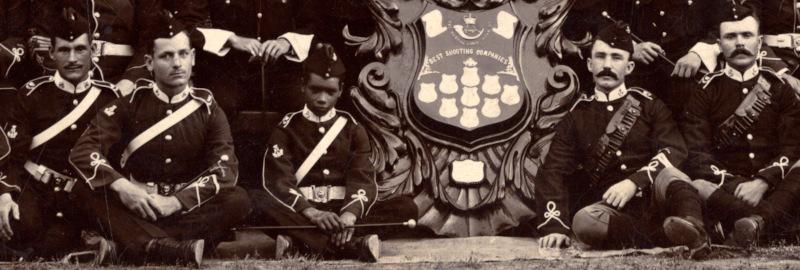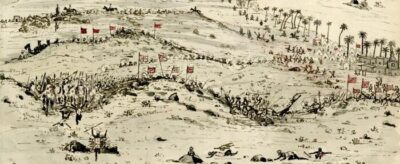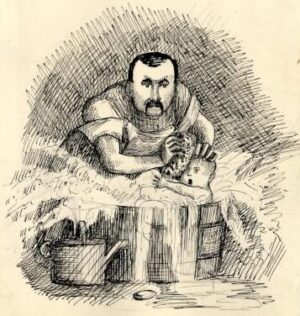The Story of Jimmy Durham

In 1899, a young boy, aged about 14 years, enlisted into the British Army as a bandsboy. He was then living in Mandalay, a garrison town in British-ruled Burma (now Myanmar) with the 2nd Battalion The Durham Light Infantry (DLI). And he had been living with these soldiers, and moving from garrison to garrison as the battalion moved, for over 12 years.
Nothing remarkable there. A 14-year-old boy of good character could enlist in the British Army as a drummer, bugler or musician, but what was remarkable was that this boy was a Black African born in the Sudan beyond the borders of the British Empire, and he was joining the British Army on the same terms as a 14-year-old white recruit.
For centuries, Black soldiers had served in the British Army, but most were from the British-ruled islands of the West Indies, and very few were born in Africa. This makes the story of this boy soldier almost certainly unique in the history of the British Army, and allows us to see Victorian soldiers, usually pictured as hard, brutal men, in a different light.
This is the story of Jimmy Durham – Black Victorian soldier.
During Queen Victoria’s long reign, the British Army’s main duty was to guard the British Empire, fighting small war after small war with enemies inside and outside the Empire.
On 30 December 1885, a combined army of British and Egyptian soldiers decisively defeated an invading Dervish Army from the Sudan on the River Nile at the Battle of Ginnis. The next day, a patrol of mounted soldiers from the 2nd Battalion DLI led by Lieutenant Henry de Lisle rode down to the River Nile.

Later Henry de Lisle described what happened:
We came to a village at the bend of the river. There a villager informed me that an enemy boat was a few miles further on. We pushed on rapidly and then in the dusk we saw the masts of the barge. Not knowing how many might have been there, we decided to creep up on foot, discharge two volleys and charge with as much noise as possible. These tactics were successful for as soon as we set up a yell, the Dervishes fled. We ran up to the boat and seized the towline and there standing on the bank of the river all alone was a small curly headed child dressed in the full war paint of a Sudanese warrior. He held up his arms for me to take him up, I did so.
On the boat a badly wounded Dervish soldier told de Lisle that the child’s father had been killed in the battle, that his mother had fled in fear, that his home was hundreds of miles further south in the Sudan at Berber, and that the child’s name was ‘Mustapha’. De Lisle handed the boy to Sergeant Stuart and the patrol rode back to camp.
For the next year, whilst still on campaign in the Egyptian desert, the battalion’s sergeants looked after the boy, who was soon named ‘Jimmy’, after his first nurse Sergeant James Birley. Sergeant Birley used to bath Jimmy every day. After soaping him all over, he stood the little boy in a bucket outside his tent and rinsed him off with water poured from a canteen.

Once back in Cairo, de Lisle wanted to send the boy to be raised by a Christian mission school and orphanage, but the sergeants pleaded that they might keep him, each promising one rupee a month to support the boy. De Lisle finally agreed and Jimmy, now christened James Francies Durham, after two of the sergeants, sailed for India with the 2nd Battalion DLI in January 1887.
In British-ruled India and Burma, Jimmy Durham lived with the married sergeants and their families, as the battalion moved from garrison to garrison. He went to school and spent his free time exercising ponies for the officers’ Polo Club.
In May 1899, when aged about 14-years-old, Jimmy was given special Royal permission to enlist in The Durham Light Infantry and became 6758 Boy James Francis Durham. He joined the battalion band, learnt to play the clarinet, was a champion runner, and was a strict teetotaller running the battalion’s branch of the Army Temperance Association.
In July 1908, after the 2nd Battalion DLI had returned to England, he met and married Jane Green of Bishop Auckland, the daughter of a local blacksmith and sister of a Quartermaster Sergeant with The Durham Light Infantry.
Sadly their marriage only lasted two years, as on 8 August 1910, whilst stationed at Fermoy in Ireland, Jimmy Durham died of pneumonia at the military hospital and was buried with full military honours in the local cemetery. He was probably no more than 27 years old.
Some of the old sergeants, who had first known Jimmy years earlier in Egypt, travelled from County Durham for his funeral. A few weeks after the funeral, Jimmy’s only child was born, a daughter, and was christened Frances. She lived in Bishop Auckland all her life and, sadly, though she married had no children herself. She died in 1998.


